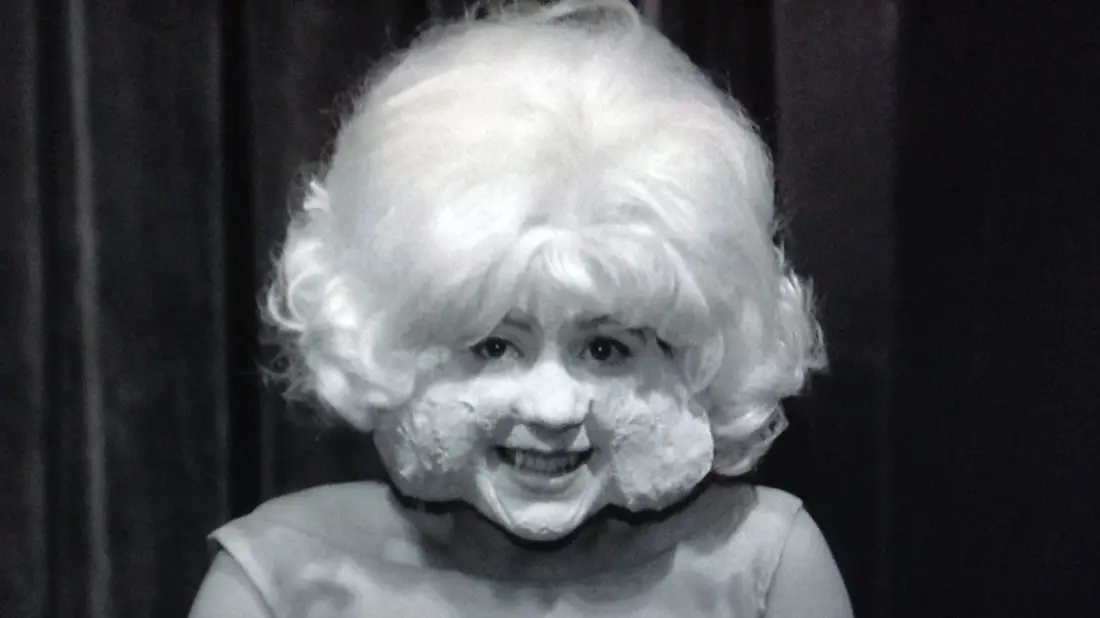In heaven, everything is fine (Backxwash, David Lynch, and Peter Ivers)

This article was originally written for The Wire Magazine’s August 2024 issue, which focuses on the work of filmmaker and musician David Lynch, in conjunction with the release of his new collaborative album with fellow multi-hyphenate Chrystabelle.
Near the conclusion of God Has Nothing To Do With This, Leave Him Out Of It, the 2020 breakout album from Zambian-Canadian horrorcore rapper Backxwash, an unlikely voice emerges from the ether:

Peter Ivers’ song “In Heaven” — the beating musical heart of David Lynch’s 1977 debut film Eraserhead — is featured as the core sample for the brief song “Heaven’s Interlude” (produced by SKIN). During this minute-long mood piece, Ivers’ eerie, androgynous falsetto is buried under layers of distortion and warbled tape effects. He might be swimming in the deep end of a boundary-pushing hip-hop album, but his otherworldly spirit is unmistakable.
In the early 1970s, Lynch and Ivers bonded over their mutual interests in arcane spirituality, alongside the spookier sides of traditional jazz and blues. At that time, the budding experimental filmmaker born in Missoula, Montana had uprooted himself to Los Angeles for a fellowship at the American Film Institute. Ivers was an LA transplant as well, first moving from Illinois to study at Harvard, then becoming the AFI’s musician-in-residence.
In a 2017 article for Offscreen Film Journal, writer Kier-La Janisse shares a tantalising detail: the Fats Waller record used in Eraserhead came from Ivers’ personal collection. Teaching himself how to play harmonica, simply because the instrument fit in his pocket, Ivers gained enough skill on the mouth harp to earn the respect of Muddy Waters. With the release of Ivers’ 1969 solo album, Knight of the Blue Communion, he and Sri Lankan vocalist Yolande Bavan offered the world a major label album that miraculously out-weirded Zappa and Beefheart.
Lynch wrote the tranquil, mantra-like lyrics for “In Heaven,” with actress Laurel Near playing the chipmunk-cheeked Lady in the Radiator in the film, lip synching to Ivers’ voice in Eraserhead’s eternally haunting finale. The song’s message is simple: “In heaven, everything is fine.”
According to Janisse’s article for Offscreen Film Journal, the Lady in the Radiator represents a “spirit guide” for the film’s troubled hero. Under a Staedtler-shaped triangle of hair, Jack Nance stars as Henry — a new father paralyzed by fear and horrific fantasies, partly because he doesn’t feel like a man.
In the film’s final scene, Henry and his neighbour share an illicit kiss, before they are bathed in milky liquid and brought to “the other place” (pre-dating the checkered floors and velvet curtains of Twin Peaks’ Black Lodge by many years). Here, Henry encounters his twin spirit: a giggly guardian angel assuring him that everything is going to be OK, even as she coyly crushes umbilical cord creatures that fall from the sky.
In her book on Twin Peaks: Fire Walk With Me, author Maura McHugh describes the Lady in the Radiator as an early motif in Lynch’s films, where gender-bending doppelgangers represent characters’ inner monologues. As McHugh says, she “channels the frustration and fears of the principle character through song, in a manner the protagonist is incapable of doing.”
Backxwash is far from the first artist to cover or remix “In Heaven,” with DEVO, The Pixies, Bauhaus, Tuxedomoon, and countless others putting their unique spins on the song. Watch the music video for Rush’s “Limelight,” and you can even spot an Erasherhead poster in the Canadian prog band’s recording studio. Yet for the transgender horrorcore rapper, the themes behind both the film and the song feel uniquely personal.
God Has Nothing To Do With This, Leave Him Out Of It is a spellbinding invocation of self-altering fury, weaving (uncleared) samples from Black Sabbath, Led Zeppelin, and pastors preaching fire and brimstone. In our 2020 interview, Backwash explained that the album’s spooky sound was at least partly inspired by Danny Brown’s Ballardian post-punk hip-hop opus, Atrocity Exhibition.
“At first I was turned off by [horrorcore] artists trying to be as violent and shocking as possible,” Backxwash told me. “I like the arty, experimental side much more.” Alongside Eraserhead, she also drew inspiration from the recent wave of marquee horror films: “There are cheesy slasher movies for sure, but you can also do something more complex like Hereditary, Midsommar or Get Out.”
Spitting righteously angry rhymes about gender transformation, primal scream therapy, and the negative effects of Christianity in Zambia, Backxwash sounded like no else on the planet, simply by speaking in her chosen voice.
“I definitely feel the fiercest that I’ve ever been,” she told me in 2020. “In my previous projects, I never really talked about myself like this. The words were true, but also a bit hollow because I wasn’t putting myself in the positions that I am now.” As she began writing lyrics about her real-life experiences, the rapper experienced a series of empowering epiphanies that could be compared to Lynchian symbols or serendipities. “Once you rip off that bandage,” said Backxwash, “it just starts flowing out!”
Lynch, Ivers, and Backxwash may seem like unlikely bedfellows at first blush, but their various creative projects have more in common than you might expect. Themes of religion and faith, challenges to the gender binary, and both manmade and supernatural horrors lingering just below the surface of everyday life have filtered throughout the three artists' output since day one. "The real world" might feel like living hell, but in their versions of heaven, everything is fine.

